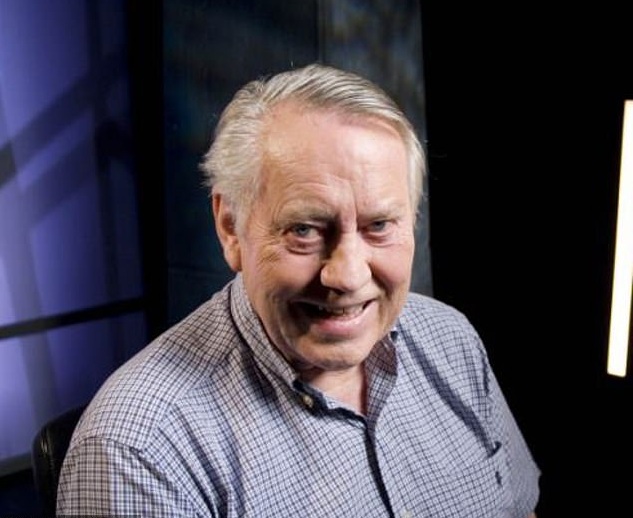All you need to know about U.S. billionaire, Charles Feeney, who gave $8 billion to Charity, to die Poor
By Chika Ngozi
89-year-old, Charles Feeney, also called Chuck, 89, who cofounded airport retailer Duty Free Shoppers with Robert Miller in 1960 has given away all of his massive wealth in order to fulfill his dream to die poor.
As a philanthropist, he pioneered the idea of Giving While Living—spending most of your fortune on big, hands-on charity bets instead of funding a foundation upon death.
”Since you can’t take it with you—why not give it all away, have control of where it goes and see the results with your own eyes?
“We learned a lot. We would do some things differently, but I am very satisfied. I feel very good about completing this on my watch,” Feeney tells Forbes. “My thanks to all who joined us on this journey. And to those wondering about Giving While Living: Try it, you’ll like it.”
Over the last four decades, Feeney has donated more than $8 billion to charities, universities and foundations worldwide through his foundation, the Atlantic Philanthropies.
READ ALSO: ''Are we still unknown in this country?'' – Nigerians react to self-certification form order
While many wealthy philanthropists enlist an army of publicists to trumpet their donations, Feeney went to great lengths to keep his gifts secret. Because of his clandestine, globe-trotting philanthropy campaign, Forbes called him the James Bond of Philanthropy.
But Feeney has come in from the cold. The man who amassed a fortune selling luxury goods to tourists, and later launched private equity powerhouse General Atlantic, lives in an apartment in San Francisco that has the austerity of a freshman dorm room.
No longer a secret, his extreme charity and big-bet grants have won over the most influential entrepreneurs and philanthropists. His stark generosity and gutsy investments influenced Bill Gates and Warren Buffett when they launched the Giving Pledge in 2010—an aggressive campaign to convince the world’s wealthiest to give away at least half their fortunes before their deaths.
“Chuck was a cornerstone in terms of inspiration for the Giving Pledge,” says Warren Buffett. “He’s a model for us all. It’s going to take me 12 years after my death to get done what he’s doing within his lifetime.”
Feeney gave big money to big problems—whether bringing peace to Northern Ireland, modernizing Vietnam’s health care system, or spending $350 million to turn New York’s long-neglected Roosevelt Island into a technology hub. He didn’t wait to grant gifts after death or set up a legacy fund that annually tosses pennies at a $10 problem. He hunted for causes where he can have a dramatic impact and went all-in.
In 2019, I worked with the Atlantic Philanthropies on a report titled Zero Is the Hero, which summarized Feeney’s decades of go-for-broke giving. While it contains hundreds of numbers, stats and data points, Feeney summarized his mission in a few sentences. “I see little reason to delay giving when so much good can be achieved through supporting worthwhile causes. Besides, it’s a lot more fun to give while you live than give while you’re dead.”
While his philanthropy is out of business, its influence reverberates worldwide thanks to its big bets on health, science, education and social action. Where did $8 billion go? Feeney gave $3.7 billion to education, including nearly $1 billion to his alma mater, Cornell, which he attended on the G.I. Bill. More than $870 million went to human rights and social change, like $62 million in grants to abolish the death penalty in the U.S. and $76 million for grassroots campaigns supporting the passage of Obamacare.
He gave more than $700 million in gifts to health ranging from a $270 million grant to improve public healthcare in Vietnam to a $176 million gift to the Global Brain Health Institute at the University of California, San Francisco.
One of Feeney’s final gifts, $350 million for Cornell to
build a technology campus on New York City’s Roosevelt Island, is a classic
example of his giving philosophy. While notoriously frugal in his own life,
Feeney was ready to spend big and go for broke when the value and potential
impact outweighed the risk.




This are the people that deserve to be called philanthropist
ReplyDeleteAbsolutely
Delete